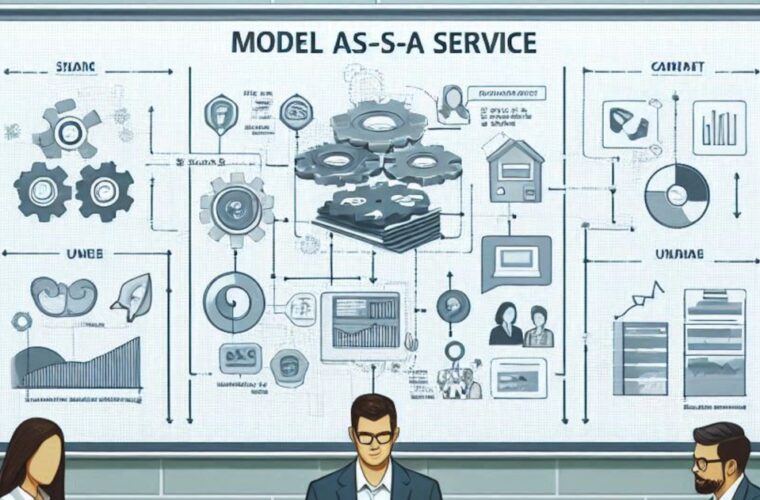Spreading cloud culture to make it easier for businesses to work. This was the mission that drove Venkat Thiruvengadam to found DuploCloud in 2018. The founder and CEO of the San Jose-based company was one of the first Microsoft Azure engineers and the first developer and founding member of the Azure networking team. He wrote significant portions of Azure’s compute stack and network controllers, seeing the platform grow from a hundred servers to millions of nodes in just a few years. After leaving Microsoft, he realised that hyperscale automation techniques had not made their way outside companies such as Amazon Web Service, Microsoft and Google. Hence the insight to create DuploCloud, with the goal of bringing hyperscale automation techniques to high street IT.
What priorities did you consider when forming the DuploCloud team?
We wanted to create a product that appealed to developers. In order to do so, we needed a team of developers themselves. But at the same time since we were solving an infrastructure problem they also needed to be experts in infrastructure and security. Coming from a similar background, I was able to create this highly specialized team from my own network of ex-colleagues and acquaintances.
Among the most recent news, you have launched your first open-source product: what is it and why you made this choice?
Yes, DuploCloud’s Compliance Auditor, which provides continuous and automated evidence collection without the user having to write any code and do manual data collection. The goal of this product was to shift the industry from a mode where achieving a compliant application is reduced from months and thousands of lines of code to one where it is done automatically.
Why should developers prefer DuploCloud to other no-code and NoOps solutions?
We consider ourselves an all-in-one no-code/low-code DevOps-as-a-Service solution. We do not know of other companies at this point with a similar solution.
How many customers does DuploCloud have?
We have more than 50 customers and are growing rapidly. On average, we see 5000 deployments per week.
What is your business model?
DuploCloud charges a monthly subscription fee for use of its software and on-going compliance monitoring (here for prices).
Can it be said that the pandemic and lockdown accelerated the demand for digital applications and services when teams were working remotely, thus encouraging the growth of the NoOps model?
The pandemic made it more difficult for start-ups selling to enterprise organizations to find DevOps engineers, and thus drove demand for DuploCloud’s business, which has seen a 270% year-over-year revenue growth.
Beyond the speed of data analysis and selection, how do cloud, artificial intelligence, and machine learning enable the DevOps-NoOps paradigm shift?
It’s really about the cloud for startups developing SaaS applications. Our software delivers the no-code experience using a proprietary rules-based engine to accelerate the deployment of applications to the cloud.
What does relying on the automation of NoOps platforms mean for companies in terms of cybersecurity: does the need for a specialized team to protect against cyber criminals remain? And if so, how does the work of cybersecurity experts change?
One of the biggest misconceptions with deploying modern cloud-based applications is that implementing the proper security controls is left to the developers. The cloud providers provide all the security “building blocks” but the cloud vendors themselves do not implement security controls making it all too easy for application developers to leave ports open, creating security vulnerabilities in their applications. DuploCloud automatically provisions applications with the proper security controls according to requisite compliance guidelines (SOC 2, PCI-DSS, HIPAA, etc.).

What types of companies prefer or will prefer to focus on Cloud-Only in the future? What benefits will they gain?
Most enterprises today are moving towards cloud-based infrastructure where deployments are 100% software-driven and underlying resources are standardized. The myriad of today’s off-the-shelf components and services allow developers to create complex applications that can work at scale either on-prem or in the cloud. While this provides flexibility and agility in terms of application development, the proliferation of these components and services has created a drastic uptick in fragmentation throughout the infrastructure. Demand for developers and other skilled tech workers is skyrocketing as businesses follow through with digital transformation plans spurred by the pandemic. The need for developers has been consistent throughout the pandemic and is likely to present one of the biggest recruitment challenges for employers over the coming months if not years.
Will the transformation of fully automated operations workflows with minimal human intervention be an example of technology delivering progress but creating unemployment?
No. Finding and retaining scarce DevOps talent is extremely difficult, especially in today’s market.
Cloud platforms are taking over the IT industry presenting an enormous scope of options for the software products deploying and, at the same time, creating serious challenges. One of the biggest challenges is the lack of professionals skilled enough to deploy on cloud-based platforms or the “DevOps skills gap”. There is a growing issue with the skills gap between developers (DevOps) and IT operations specialists. DevOps teams need to be skilled in programming, operations, and information security/compliance, which is rarely the case and results in suboptimal programming, poor code organization, and deployment of less secure infrastructure.

Applications that used to be built with just a few VMs for storage, compute and network have now exploded into scores of configurations around security groups, containers, namespaces, clusters, IAM roles, policies, object stores, NoSQL databases, and so forth. In fact, building a fully automated and compliant infrastructure running on as few as 50 VMs in a regulated industry is a long arduous process requiring uniquely skilled—and scarce—DevOps resources. There are not enough developers with these combined skill sets. It is all about how fast innovative technology is accessible in the cloud and the time the deployment phase of the software production cycle takes. With the shortage of skilled DevOps teams, companies face a much longer time to bring dynamic applications to the cloud.
No-code/low-code platforms reward startups, which can overcome their lack of IT skills and bring their product to market. Is it really all that simple?
It really is that simple. Our team interviews the customer to understand the cloud services and compliance requirements for their application. Onboarding and installation of our software in the customer’s cloud account is included in the monthly subscription. Deployment is as easy as choosing the services via our no-code web UI. Our platform also performs ongoing security monitoring and alerting. Any changes that are needed after deployment are easily accomplished through our UI by application developers and our team of experts is available 24/7 via a dedicated customer Slack channel.
What did you learn at Microsoft and what did working in a big company teach you?
Working at Microsoft on a niche team like Azure at that time, provided me an opportunity to work very closely with some of the stalwarts of computer software. Some of whom were early inventors of the core technologies of operating systems, memory management, databases and distributed systems. This engrained a highly disciplined approach to programming and design that enabled me to build scalable systems for billions of users that stood the test of time. While Azure was a very small group that operated like a startup, it was well understood that the systems that were being built would have huge commercial adoption. This experience allowed me to bootstrap DuploCloud to over $1M ARR early on with a handful of engineers and set a solid foundation for our current growth.



